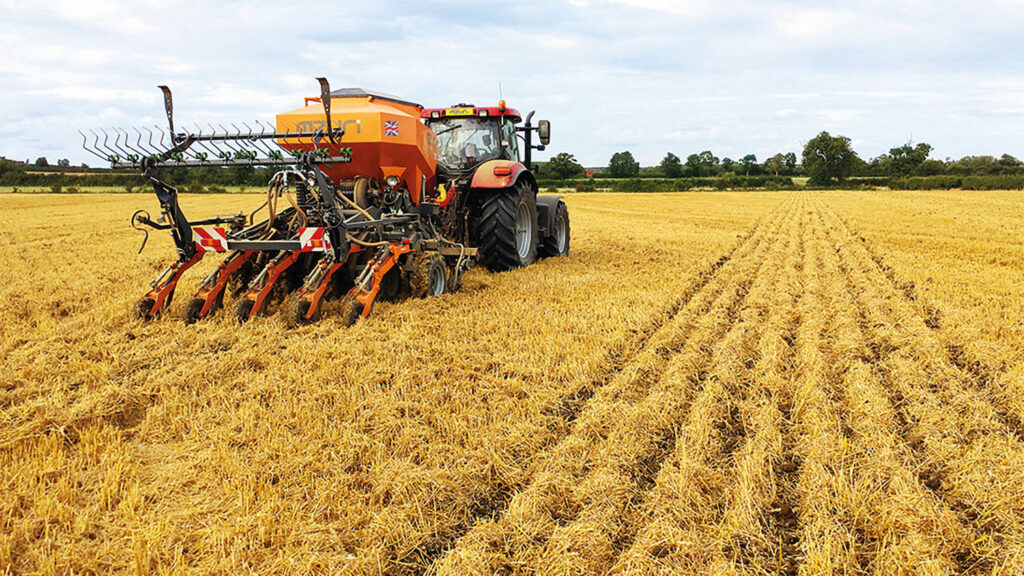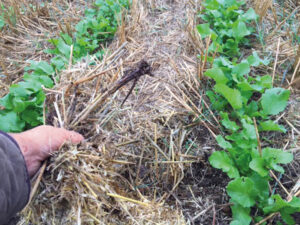Working with straw for improved soil health
4th April 2022
British single pass drill manufacturer Mzuri advocates leaving all previous crop residue on the surface prior to drilling as a means of improving soil health and fertility.

Drilling direct into surface straw has seen Springfield Farm drastically improve soil health, fertility and organic matter levels.
It is this practice that the company attributes to the year-on-year success of the direct drilling system and overall farm health on its own trial farm in Worcestershire. Springfield Farm has been the test site for the Mzuri system since its inception over 10 years ago, and in that time, it has gone from a depleted, downtrodden enterprise to an arable unit supportive of high yields with positive impacts on its surrounding environment.
Prior to the Mzuri system taking hold on Springfield Farm, the historical farm practice was to remove all straw, then plough over the ground followed by a power harrow and combination drill. Whilst this was a typical system up and down the country at the time, it was clear from the plateauing yields, slumping of the heavy Evesham lias clay soils, and expensive inputs that enough was enough.
In looking at ways to tackle the root of the problem, engineer and farm owner Martin Lole looked to ultimately reduce his costs of establishment, to reduce the risks to the enterprise and to improve the fertility and productivity of the soils. In doing so, he created the Mzuri single pass system which consolidated vital operations for seed germination, whilst removing the need to blanket cultivate – which was a drain on resources and was not supportive of good soil structure.

Stubble can provide the perfect nursery seedbed for young plants.
In the years that followed, the Mzuri Pro-Til drill established all of the farm’s crops, including oilseeds, cereals, beans and maize; and did so directly into stubble or cover crops. One of the defining features of the Mzuri Pro-Til was the requirement to drill into high volumes of straw – something which Martin recognised as a key component of improving the health of the farm’s tired soils.
By leaving the crop residue on the surface, it supported the soil’s biodiverse ecosystem, retained moisture, improved organic matter and reduced water and wind erosion – all ingredients for an improved soil system.
Mzuri now recommends leaving a stubble height of 150–250mm to ensure good trash flow through the drill. At this height, the straw also provides the optimum environment to offer sufficient shelter to plants from cold temperatures and wind, whilst being short enough to allow adequate levels of light penetration. It is also recommended that chopped straw and chaff is spread evenly across the field – something which may be achieved with a stubble rake, if necessary.
Since Springfield Farm started leaving all crop residue on the surface, in addition to employing the Mzuri single pass system, yields have increased from 8t/ha for winter wheat to 11.t/ha. The farm has also seen a noticeable difference in the feel of the soil under foot and wheel, with a much more supportive structure which carries machinery well and is less likely to run off in periods of heavy rain.
